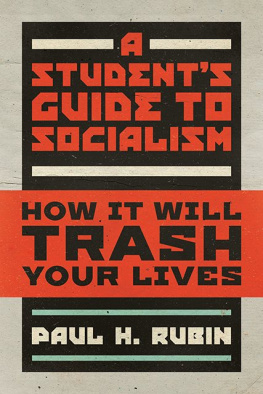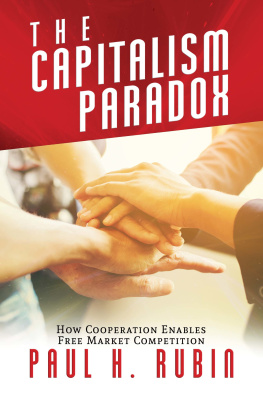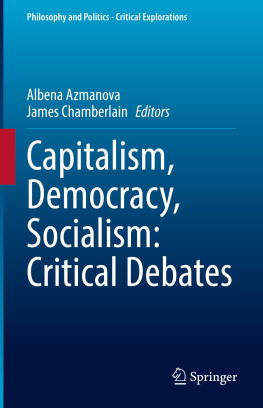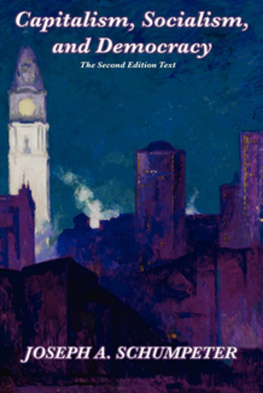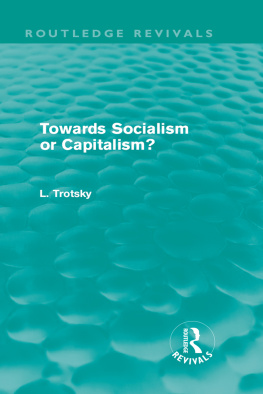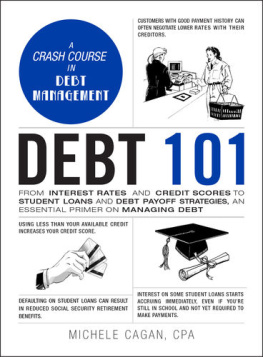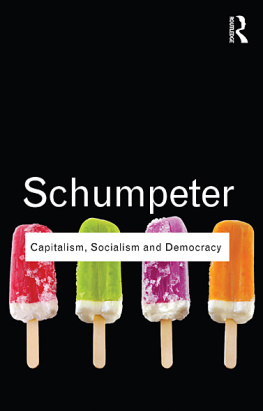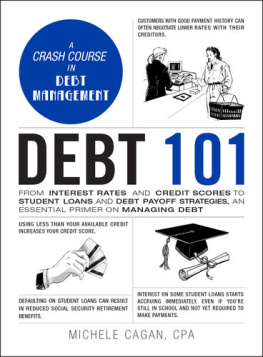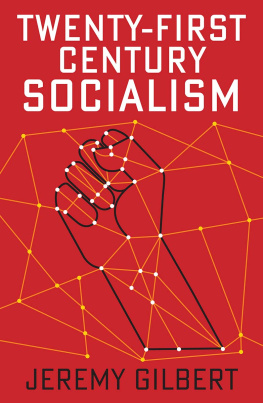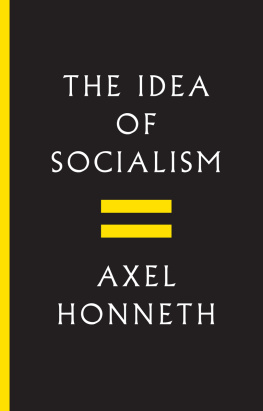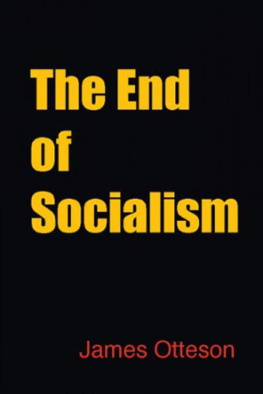Advance Praise for
A Student s Guide to Socialism
Most books on socialism show that it has always been a disaster. Paul Rubin takes a different tack: His wonderful book shows that socialism would be a disaster in the future for today's students. If the U.S. were to adopt socialism as advocated by Bernie Sanders, young people could expect their lives to be worse. They would be poorer, less free, and unhealthier. Besides, the gadgets they depend on (computers, smartphones, game machines, electronic readers) and the apps based on these machines have all been invented by capitalists, and future technology (artificial intelligence, 5G, biotech) would not be developed as robustly, if at all, in a socialist world. Every parent and grandparent of a student should buy a copy of this book.
Rand Paul , U. S. Senator and author of The Case Against Socialism
This is an important book. Today. And twenty-five years ago and twenty-five years from now. It exposes the lie of socialism: socialism is simply an alternative to liberty. Unlike libertys other competitorsmonarchy, theocracy, aristocrats, mob rule, or ethnic divisionsocialism has found allies in all centuries. Even our own. This Hydra-headed lie must be beaten back each and every generation. A King. An aristocracy. A central committee or a bureaucracy all serve themselves at the expense of the people. A Students Guide to Socialism should be read by every student today and by their children and their childrens children.
Grover Norquist, President, Americans for Tax Reform
A Students Guide to Socialism is a readable and powerful foray into what young people can expect for their future if the U.S. were to embrace socialism. Rubin is a master at explaining basic economic insights while avoiding technical jargon and math. Here, he uses accessible prose and relatable examples to show college-aged readers that socialism would reduce their lifetime income, their opportunities, and their freedoms.
Susan E. Dudley, Director, The George Washington University Regulatory Studies Center, Distinguished Professor of Practice, Trachtenberg School of Public Policy and Public Administration
Also by Paul H. Rubin
The Capitalism Paradox:
How Cooperation Enables Free Market Competition
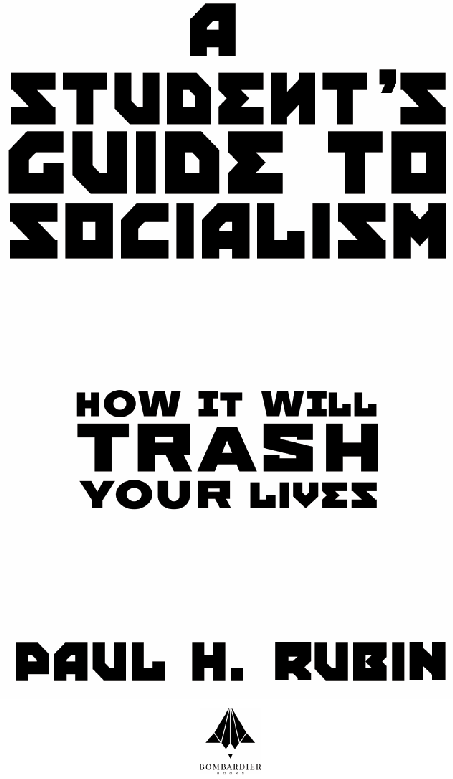
A BOMBARDIER BOOKS BOOK
An Imprint of Post Hill Press
ISBN: 978-1-64293-671-1
ISBN (eBook): 978-1-64293-672-8
A Students Guide to Socialism:
How It Will Trash Your Lives
2020 by Paul H. Rubin
All Rights Reserved
Cover Design by Cody Corcoran
No part of this book may be reproduced, stored in a retrieval system, or transmitted by any means without the written permission of the author and publisher.
Although every effort has been made to ensure that the personal and professional advice present within this book is useful and appropriate, the author and publisher do not assume and hereby disclaim any liability to any person, business, or organization choosing to employ the guidance offered in this book.


Post Hill Press
New York Nashville
posthillpress.com
Published in the United States of America
TABLE OF CONTENTS
From Martie and Paul to our grandchildren:
Abby, Ben, Brian, Emily, Hannah, Mia, and Michael.
May you and all your contemporaries have an even better life than members of our generation.
There are many books and articles on socialism. Why another? What can another book add to what we already know or can easily find out?
You can find discussions at any length and depth of analysis of the history of socialism; the effects of socialism on efficiency and inefficiency; the effects on equity, fairness, and income distribution. There is even a book dedicated to a discussion of the effect of socialism on the quality of beer. There are discussions of the Soviet Union, of Venezuela, and of the Scandinavian countries.
All of these analyses and discussions are backward lookingthey describe the way socialism has worked (failed) in the past. They are at a theoretical or historical abstract level. The purpose of this book is different. It is written for studentsmainly college students, although it is relevant for younger students as welland for non-students. It is forward lookingHow will socialism affect your lives in the future . You probably have only a vague knowledge of the Soviet Union, which collapsed in 1991, before you were born. Venezuela is in South America, and that part of the world always has government problems. Scandinavia is a few frozen countries on the border of Europe. Efficiency, equity, fairness, and income distribution are abstract theoretical terms that dont mean much outside of class, if you take the right classes. Otherwise, they are just noise.
The purpose of this book is to explain exactly what socialism would mean for you , if it were to be adopted in the U.S. That is, I want to show exactly what it would mean for you, as a twenty-year-old student reading this book today, to live the rest of your life in a socialist country with a socialist economy. You live in a capitalist society, so you know something about that. But socialism is something you have never experienced. I want to get away from abstractions and explain exactly how socialism would affect the rest of your life. I have purposely made the book short so you will find it worth your time to read it. For the same reason, I have avoided jargon and most mathematics (which is hard to do for an economist) so you will find it readable.
The book is in two parts. Part I is the applied partwhat do you actually need to know about what life would be like in the future under socialism. If you only read this part, the book will have fulfilled its purpose. Part II is more abstract, though still not too abstract. It provides some background on socialismhow has it actually worked in practice, why some people prefer socialism, how socialism compares with capitalism. If you are still curious after reading Part I, then Part II is for you.
Before beginning, I need a working definition of Socialism. Just what am I talking about? There are lots of abstract and theoretical definitions. But I am not going to get into that, and I am not going to give my own definition. Rather, I am going to let the leading American socialist explain what he means. In a speech given on June 12, 2019, Bernie Sanders has defined socialism:
We must take the next step forward and guarantee every man, woman and child in our country basic economic rights the right to quality health care, the right to as much education as one needs to succeed in our society, the right to a decent job, the right to affordable housing, the right to a secure retirement and the right to live in a clean environment. Sounds good, doesnt it?
Actually, that is a mild definition of socialism, although, as we will see, even that version is enough to radically change the U.S. I will from time to time refer to the more standard definition, an economic system in which the government controls the means of production. An even more extreme version is the Green New Deal, proposed by Alexandria Ocasio-Cortez (AOC), but this version is so extreme that it is unlikely to be adopted, and so it is not worth discussing.
Although the book is about socialism, I sometimes discuss communism. W hile there are many American advocates of socialism, there are few proponents of communism. Nonetheless, in their fundamental economic structure, the two systems are basically the same. Both systems are opposed to capitalism. Both systems advocate government ownership of the means of production and control by the people, not by capitalist owners. Moreover, to many communists, and probably many socialists as well, socialism is only a step on the way to full communism. Additionally, socialism does not seem to be an equilibrium. Some socialist countries become capitalist and others move to full communism, but few stay in the middle. Therefore, we can gain some insight by considering socialism and communism together, as long as the distinction is kept clear.
Next page
